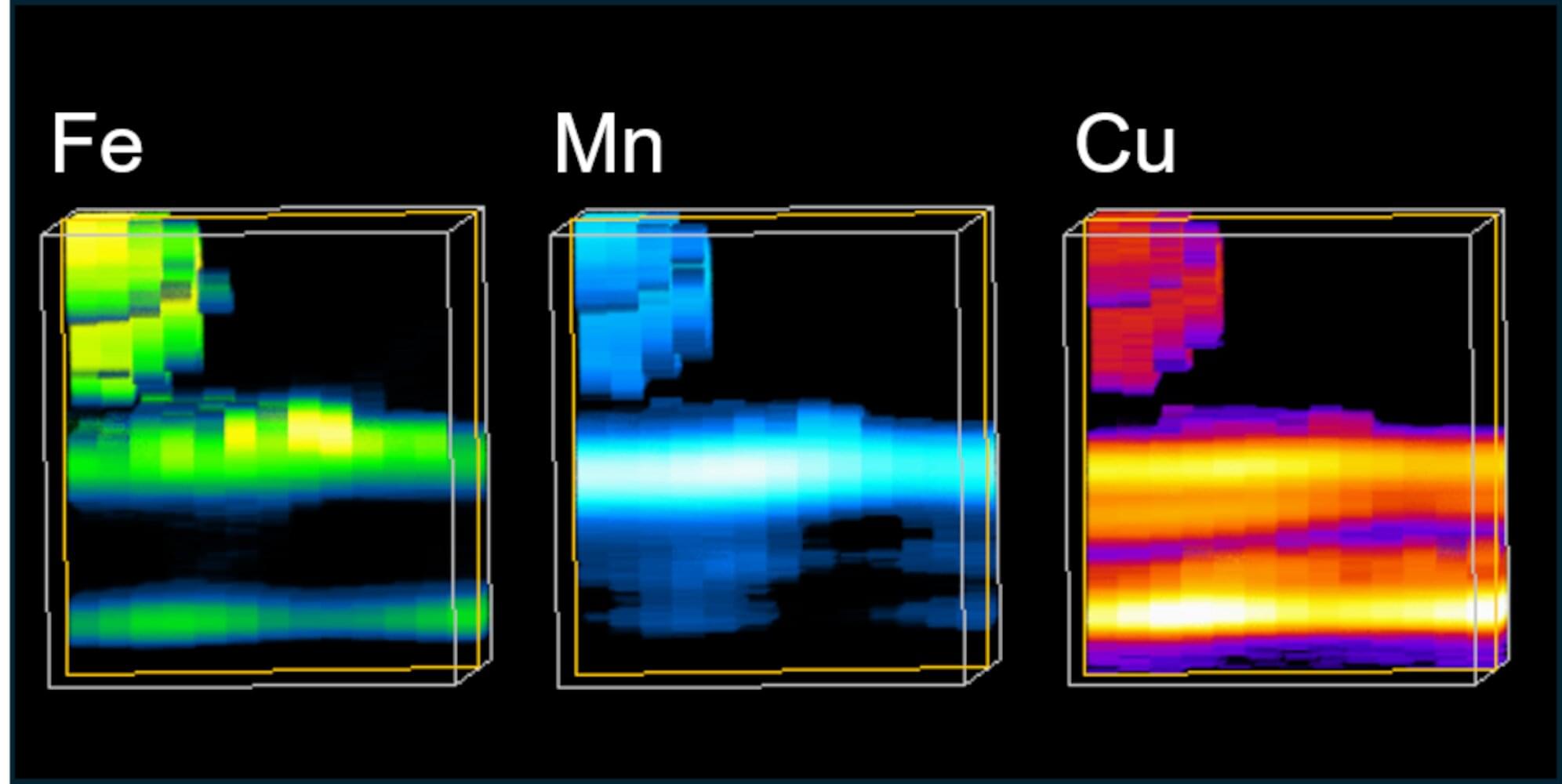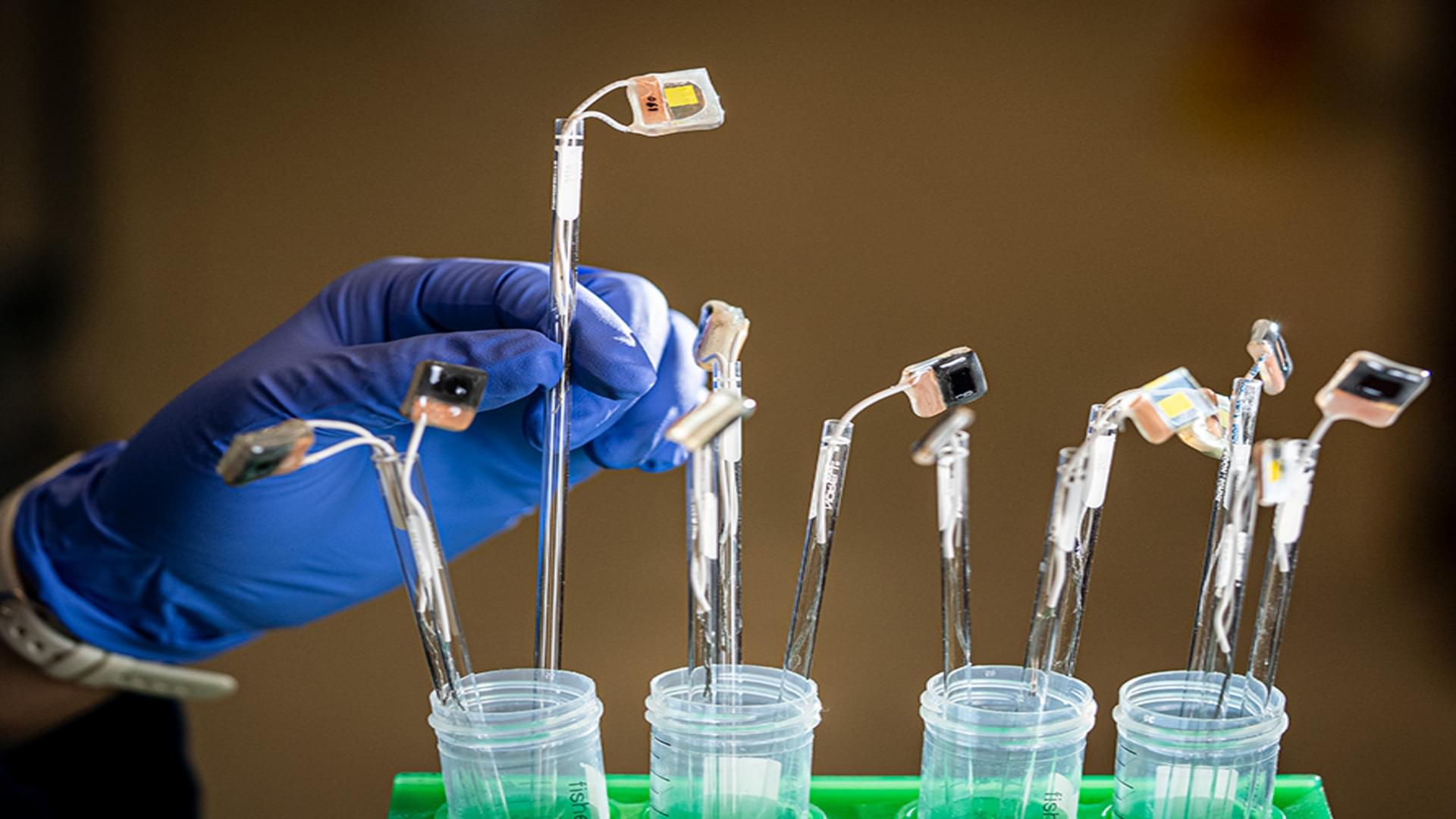SentinelOne uncovers China-linked PurpleHaze attacks and North Korean infiltration attempts amid rising EDR testing abuses.



Lithium button cells with electrodes made of nickel-manganese-cobalt oxides (NMC) are very powerful. Unfortunately, their capacity decreases over time. Now, for the first time, a team has used a non-destructive method to observe how the elemental composition of the individual layers in a button cell changes during charging cycles.
The study, published in the journal Small, involved teams from the Physikalisch-Technische Bundesanstalt (PTB), the University of Münster, researchers from the SyncLab research group at HZB and the BLiX laboratory at the Technical University of Berlin. Measurements were carried out in the BLiX laboratory and at the BESSY II synchrotron radiation source.
Lithium-ion batteries have become increasingly better. The combination of layered nickel-manganese-cobalt oxides (NMC) with a graphite electrode (anode) has been well established as the cathode material in button cells and has been continuously improved. However, even the best batteries do not last forever; they age and lose capacity over time.


Scientists have demonstrated that a surface reconstruction strategy can enable affordable hydrogen fuel production. The hydrogen fuel is created using The hydrogen evolution reaction (HER). However, scaling this process from a lab experiment to large-scale commercial production has been challenging.
Now, scientists in Japan have showcased that a surface reconstruction pathway can produce durable, non-noble metal-based cathodes that speed up the HER reaction.
Researchers highlighted that they can maintain their performance for more than 300 hours and are calculated to cost very close to the US Department of Energy’s 2026 H2 production target ($2.00 per kgH2-1).


Leading health experts have warned that the US is staring down the barrel of another pandemic as bird flu spirals out of control on US farms.
So far, the H5N1 outbreak has affected nearly 1,000 dairy cow herds and resulted in more than 70 human cases, including the first confirmed death.
The US poultry industry is at significant risk, say experts from the Global Virus Network (GVN), particularly in areas with high-density farming and where personal protective practices may be lacking.
Now featuring a vertical solo mode.
Lately, there’s been growing pushback against the idea that AI will transform geroscience in the short term.
When Nobel laureate Demis Hassabis told 60 Minutes that AI could help cure every disease within 5–10 years, many in the longevity and biotech communities scoffed. Leading aging biologists called it wishful thinking — or outright fantasy.
They argue that we still lack crucial biological data to train AI models, and that experiments and clinical trials move too slowly to change the timeline.
Our guest in this episode, Professor Derya Unutmaz, knows these objections well. But he’s firmly on Team Hassabis.
In fact, Unutmaz goes even further. He says we won’t just cure diseases — we’ll solve aging itself within the next 20 years.
And best of all, he offers a surprisingly detailed, concrete explanation of how it will happen:
building virtual cells, modeling entire biological systems in silico, and dramatically accelerating drug discovery — powered by next-generation AI reasoning engines.
🧬 In this wide-ranging conversation, we also cover:
✅ Why biological complexity is no longer an unsolvable barrier.
✅ How digital twins could revolutionize diagnosis and treatment.
✅ Why clinical trials as we know them may soon collapse.
✅ The accelerating timeline toward longevity escape velocity.
✅ How reasoning AIs (like GPT-4o, o1, DeepSeek) are changing scientific research.
✅ Whether AI creativity challenges the idea that only biological minds can create.
✅ Why AI will force a new culture of leisure, curiosity, and human flourishing.
✅ The existential stress that will come as AI outperforms human expertise.
✅ Why “Don’t die” is no longer a joke — it’s real advice.
🎙️ Hosted — as always — by Peter Ottsjö (tech journalist and author of Evigt Ung) and Dr. Patrick Linden (philosopher and author of The Case Against Death).
